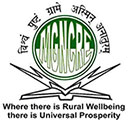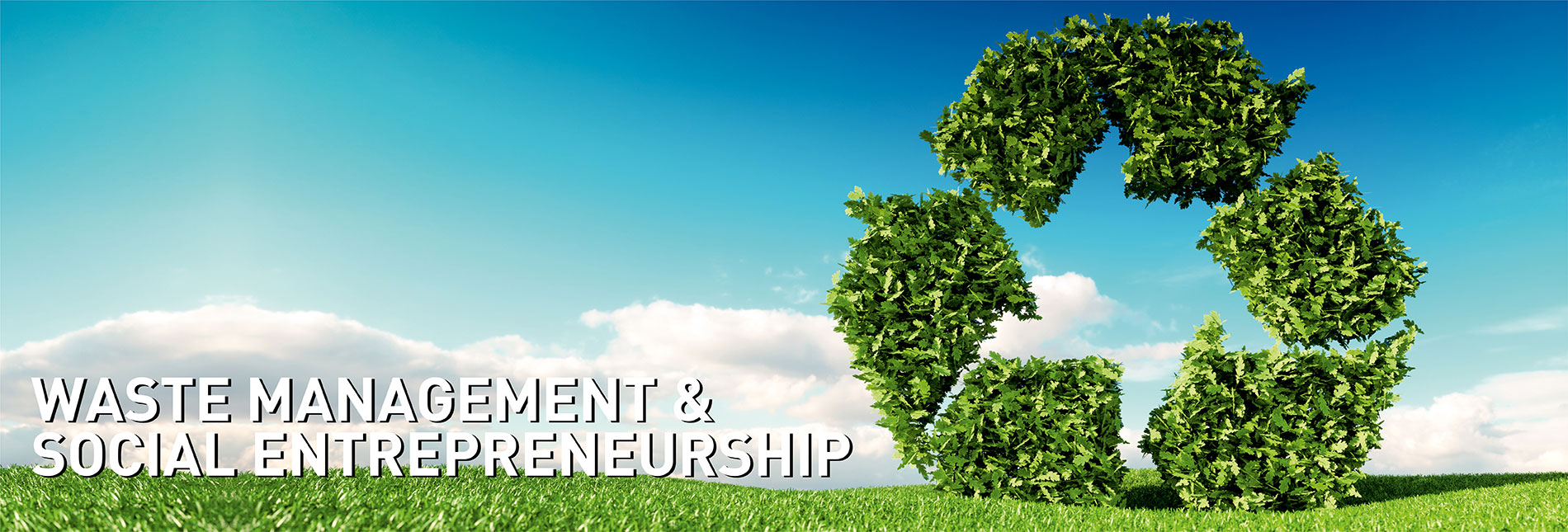2-Year MBA in Waste Management & Social Entrepreneurship With MGNCRE
* Starting in July, 2020
We are a generation at the crossroads of a major natural resource crunch and very soon we will find it difficult to sustain this burgeoning population of ours. Nature has always been kind to provide bountiful resources simply because every substance innature follows a cycle of creation and destruction and thereby regular replenishment which has been taking place silently since eons. However, despite having learnt to utilize these natural resources through science and technology, humankind is falling prey to its over-usage causing serious depletion of resources. This is the result of human interventions causing incomplete ecological cycles.
About Mahatma Gandhi National Council of Rural Education (MGNCRE)

Mahatma Gandhi National Council of Rural Education (MGNCRE) under the Ministry of Human Resource Development, in Government of India, strives to promote resilient India through Higher Education interventions.
While remembering Mahatma Gandhi on his 150th birth anniversary it is a bounden duty of all us to take on his
ideals and present national priorities of Swachhta from this historical perspective. Gandhiji saw Swachhta as
a means of spreading dignity of labour and equality in the communities.
PROGRAM OVERVIEW
Environmental concerns on management of our surroundings, and solid waste management have been a neglected area so far, as far as the collective responsibility of society towards this issue is concerned. However its importance cannot be negated, nor overlooked any further. It is a potent lucrative case for business. Hence a specialized understanding of the subject will be essential and would pave the way for scientific handling of surroundings, and adopting safe and secure methods of disposal of inevitable domestic and industrial Wastes.
The field of Swachhta or Cleanliness opens many doors. It has the potential to provide fulfilling, well-paying livelihoods and holds the promise to a clean, liveable future. The students who choose this line of study are opting into not just for a career, but a healthy living for themselves and for the society. An MBA Programme in Waste Management focusing on Waste management and Social Entrepreneurship will empower today’s youth to leave an indelible mark on the sands of time.
CAMPUS RECRUITMENT
On completion of the Course the student will be able to make waste management a rewarding career or a lucrative business in \any of the following areas:
- Management of Collectives:
which deal with different varieties of wastes, recycling as well as organic compost, or waste-to energy facility. - Medical bio-waste management:
This includes hazardous biological waste and animal waste from slaughter houses. - Scrap management systems:
The age-old scrap business can be improved immensely through networking and collectives. - Refuse-derived energy generation:
Depending in the quality of waste, energy can be derived through anaerobic digestion or brickets, pellets. - Waste market promotion:
Waste exchange for organic and inorganic waste streams. - Food banks:
Systematic collection and redistribution of excess cooked and raw-food, while maintaining good, hygienic standards requires round-the-clock dedication. - Medicine Banks:
For collection and redistribution of unused portions of medicines before expiry date. - Recycling and up-cycling:
Methods to reuse resources by harvesting them from old, out-of use goods and converting them into new, useful articles. - Clothes, books and toys banks:
The collection and redistribution of unused and gently used clothes, books and toys, while maintaining them during transfer. - Composting:
Maintaining and managing Vegetable waste, fruit waste and garden compost facilities and STPs in parks and residential areas is a long-term business. - Agricultural waste management:
Dairy waste and farm animal waste management and composting in the proper way can significantly reduce the dependence on chemical fertilizers while preventing land and water pollution. - Construction waste and building debris recycling:
These can easily be processed to reuse in the construction industry. - Hotel waste management:
The scope of reuse, up-cycling and recycling of wastes produced by the hotel & hospitality industry is immense. - Hospital waste management:
A flourishing line of work, with special attention to sharps, biomedical wastes, radioactive wastes and chemicals. - Water Recycling and Management:
Fresh water can be utilized several times if handled in a systematic manner. This area has tremendous scope in present times. - E-waste management:
A specialized area of work, subject to a separate set of stringent norms for handling e-waste. - Research opportunities:
Develop new technologies for waste management or recycling.
PROGRAM HIGHLIGHTS
With technology supplementing and sometimes replacing human labour, it is increasingly difficult for today’s youth to find rewarding jobs. The fields of Solid Waste Management and Social Entrepreneurship can open many doors. It has the potential to provide fulfilling, well-paying livelihoods and holds the promise to a clean, liveable future. The student who chooses this line of study is opting into not just a career, but a healthy living for themselves and for society. A Post Graduate Diploma will provide the necessary wherewithal to build a career in the fields of Solid Waste Management.
- Introduction to Waste Management
- Principles & Practices of Management
- Fundamentals of Operations Management
- Managerial Economics
- Financial Accounting
- Research Methods for Management
- Individual and Organizational Behaviour
- Waste Management Logistics, Technical Processes & Methods
- Financial Management
- Marketing Management
- Entrepreneurship in Waste Management
- Human Resource Management & Organizational Development
- StrategicManagement
- Regulatory Framework-Legal Aspects and Mandatory Regulations ICTandMIS
- WasteManagementas Project Management and GIS
- CreativityandInnovation
- Elective
– Operations Management(OM)
– Marketing (MM)
– Waste Management (WM)
Eligibility & Fees
- The candidate should have completed the Bachelor’s Degree with minimum of 50% aggregate marks in any stream from a recognised university.
- The candidate appearing in the final year examination can apply but the candidate must have secured minimum 50% (aggregate) marks till the previous year’s examination. However, the candidate must submit his/her graduation completion certificates by September 30, 2021, failing which he/she shall be de-registered.
- Candidate having compartment in any subject will not be considered.
- Having work experience is not a requirement for admission to the program.
- Admission to the MBA program at Chitkara Business School is based on merit ranking in CAT / MAT / NMAT / XAT / CMAT Score, followed by group discussions and personal interview. Applicants who have not taken any of the above mentioned entrance exams shall have to take Chitkara University Test with group discussions and personal interview. Decision of the selection committee will be final.
Fees
| Year I | Rs. 1,20,000 |
| ERP Fee^ | Rs. 10,000 |
| CAS^^ | Rs. 20,000 |
| Year II † | Rs. 1,30,000 |
^ERP Fee only at the time of admission
^^CAS Career Advancement Services Fee only at the time of admission
†Rs. 2,500/- towards alumni services has to be paid with the last installment


















